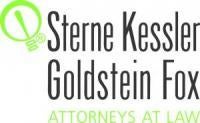In TC Heartland LLC v. Kraft Foods Group Brands LLC, No. 16-341, 581 U.S. __ (2017), the Supreme Court reversed a Federal Circuit decision and clarified the proper scope of venue pursuant to the patent venue statute, 28 U.S.C. §1400(b). For a domestic corporate defendant, venue is now proper in either (1) the district of the defendant’s place of incorporation, or (2) the district where the defendant has committed acts of infringement and has a regular and established place of business.
TC Heartland overturned the 1990 Federal Circuit decision VE Holding Corp. v. Johnson Gas Appliance Co., in which the Federal Circuit had held that a plaintiff may bring a patent infringement suit against a corporate defendant in any district where the corporation is subject to personal jurisdiction. Because most companies with sales nationwide are likely to be subject to personal jurisdiction in nearly all districts in the United States, any venue analysis ended with personal jurisdiction, i.e., venue was proper nationwide. TC Heartland now limits those districts of proper venue to the few where the corporate defendant is incorporated, or has committed acts of infringement and has a regular and established place of business.
Distinguishing the Patent Venue Statute from the General Venue Statute
The patent venue statute provides that “[a]ny civil action for patent infringement may be brought in the judicial district where the defendant resides, or where the defendant has committed acts of infringement and has a regular and established place of business.” 28 U.S.C. § 1400(b). The question in TC Heartland hinged on the appropriate definition of “reside[ncy].”
The Federal Circuit had answered this question in 1990 in VE Holding, in which the court defined residency by reference to the general venue statute, 28 U.S.C. § 1391(c). The general venue statute broadly defined residency to include all districts where a defendant is subject to personal jurisdiction.
However, VE Holding was arguably contrary to a 1957 Supreme Court decision that had rejected the incorporation of the general venue statute into the patent venue statute and held that §1400(b) “is the sole and exclusive provision controlling venue in patent infringement actions, and . . . is not to be supplemented by §1391(c).” Fourco Glass Co. v. Transmirra Prods. Corp., 353 U.S. 222, 229 (1957). Furthermore, “Congress enacted §1400(b) as a standalone venue statute . . . designed . . . to be complete, independent and alone controlling in its sphere.” Id. at 228. As such, the Fourco court concluded that for purposes of §1400(b), a domestic corporation resides only in its State of incorporation. Id. at 226.
In the time since Fourco, Congress amended the general venue statute twice, once in 1988 and again in 2011; however, Congress never amended the patent venue statute. The plaintiff-respondent in TC Heartland argued that subsequent amendments to the general venue statute effectively amended the patent venue statute as well, and accordingly that—as the Federal Circuit held in VE Holding— §1391(c) supplies the definition of “resides” for purposes of §1400(b).
However, the Court rejected this argument. “When Congress intends to effect a change of that kind, it ordinarily provides a relatively clear indication of its intent in the text of the amended provision.” Slip op. at 8. The 2011 amendment of §1391 “does not contain any indication that Congress intended to alter the meaning of §1400(b) as interpreted in Fourco.” Id. Moreover, the 2011 amendment includes a “saving clause,” which explicitly carves out the application of § 1391(c) when “otherwise provided by law.” Thus, the Court noted that the saving clause “expressly contemplates that certain venue statutes may retain definitions of ‘resides’ that conflict with its default definition.” Id. at 9. Accordingly, the Court concluded that “residency” for purposes of the patent venue statute retains the limited definition of the State of incorporation set forth in Fourco.
How TC Heartland Affects Pending and Future Litigation This decision has wide implications. Venue is now proper only where the corporate defendant (1) has a place of incorporation, or (2) has committed acts of infringement and holds a regular and established place of business.
This decision reins in a plaintiff’s ability to pick and choose the forum most convenient for the plaintiff with no regard for the particular defendants sued or the particular acts of infringement alleged. Thus, depending on the unique facts of each case, some pending cases may be ripe for a motion to dismiss for improper venue as long as a defendant preserved its right to challenge it.
For future patent litigation, TC Heartland will impact cases in a number of ways: • Districts, such as E.D. Tex., which are popular to patent owners but have fewer incorporated companies, will see fewer patent filings. • States with more incorporated companies, such as California, Delaware, and New York, will see an uptick in patent filings. • Districts with more corporate headquarters, or other regular and established places of business, such as N.D. Cal., C.D. Cal., N.D. Tex., S.D. Tex., S.D.N.Y., and N.D. Ill. will see an uptick in patent filings if the defendant has committed acts of infringement in the district. • Filing against multiple defendants may require filing in multiple different districts, which will likely increase costs and stretch resources for plaintiffs. • With multiparty litigation, litigants will see an increase in the use of multidistrict litigation panels, under 28 U.S.C. §1407, for pretrial matters.
TC Heartland’s narrower interpretation of §1400(b) will likely quell some patent suits in the immediate future as plaintiffs confront the realities of possibly litigating in multiple districts. However, the new issue for questions of venue will likely hinge on what constitutes a “regular and established place of business.” The patent venue statute has two prongs, and if either is satisfied, venue is proper.
Because the pre-TC Heartland interpretation of the first factor was so broad, the second factor allowing venue in the district with a “regular and established place of business” had largely been irrelevant in the venue analysis in recent years. It is likely future courts analyzing the propriety of venue will have to interpret the term “regular and established place of business.”
The Supreme Court’s decision in TC Heartland will diminish a plaintiff’s ability to forum-shop. Consequently, plaintiffs will be much more limited in their choice of fora, and defendants will likely end up in districts to which they have a stronger connection. While this decision may not affect some larger corporate defendants with offices nationwide, it will likely provide smaller corporate defendants an avenue to transfer cases to a more favorable venue closer to home.
Joseph Kim contributed to this post.



 />i
/>i
